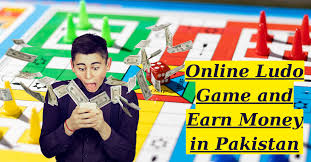
In Pakistan, gambling is generally viewed with skepticism, influenced by a mix of religious, cultural, and social factors. Islam, the dominant religion, explicitly prohibits gambling, considering it a sinful activity that promotes harm and vice. This religious prohibition heavily shapes public opinion, making gambling largely unacceptable in the mainstream Pakistani society. However, despite its religious and cultural taboo, gambling still exists in various forms, often in underground or semi-legal spaces. This paradox reflects the complex relationship Pakistanis have with the activity, where the practice is simultaneously rejected and yet, at times, tolerated in certain circles.
The Religious Perspective: Gambling as a Forbidden Act
Islamic teachings, which guide the moral and social values of most Pakistanis, strictly forbid gambling, viewing it as a form of “maysir” (chance-based risk) that leads to unjust gains and societal harm. The Quran mentions gambling in several verses, condemning it for fostering greed, addiction, and disputes. As a result, many Pakistanis associate gambling with moral decay and avoid it out of religious duty. For devout Muslims, this prohibition is clear and non-negotiable, shaping not only individual behavior but also public discourse around gambling.
Socio-Economic Factors: Gambling as an Escape
Despite the religious and cultural aversion to gambling, it still exists in various forms in Pakistan, particularly in cities and areas where poverty, unemployment, and financial struggles are prevalent. Some individuals view gambling as a quick way to escape economic hardships or as an alternative to conventional investments. Street-based gambling activities, such as card games and cricket betting, are common in certain social circles. While many people may not openly endorse gambling, it’s sometimes seen as a “necessary vice” for those seeking to improve their financial situations, even if temporarily.
The Role of Media and Entertainment: Normalizing the Narrative
Pakistani media and entertainment have played a significant role in shaping attitudes toward gambling. While television, movies, and sports coverage do not often portray gambling in a positive light, they do subtly incorporate it into popular culture. In the context of cricket, for example, betting and match-fixing scandals have captivated public attention, blurring the line between legitimate sports and illegal gambling. As these topics frequently dominate conversations, especially during cricket seasons, they normalize the idea of gambling, even as the activity remains officially illegal. This duality creates an environment where gambling is seen as both a taboo and an inevitable part of certain leisure activities.
A Nation in Conflict Over Gambling
In conclusion, Pakistanis’ views on gambling are complex and multifaceted, shaped by a blend of religious values, socio-economic conditions, and the influence of media. While the majority of Pakistanis reject gambling on moral grounds, the persistence of gambling activities in society suggests that there is a hidden, more tolerant side to the issue. Whether driven by financial desperation or the allure of quick wealth, gambling continues to play a role in the lives of many, even if they do not openly embrace it. Ultimately, the debate over gambling in Pakistan reflects a broader struggle between religious tradition, economic realities, and the evolving forces of modernity.
Experience Thrills and Big Rewards at KKClub Casino – Pakistan’s Premier Gaming Hub!



